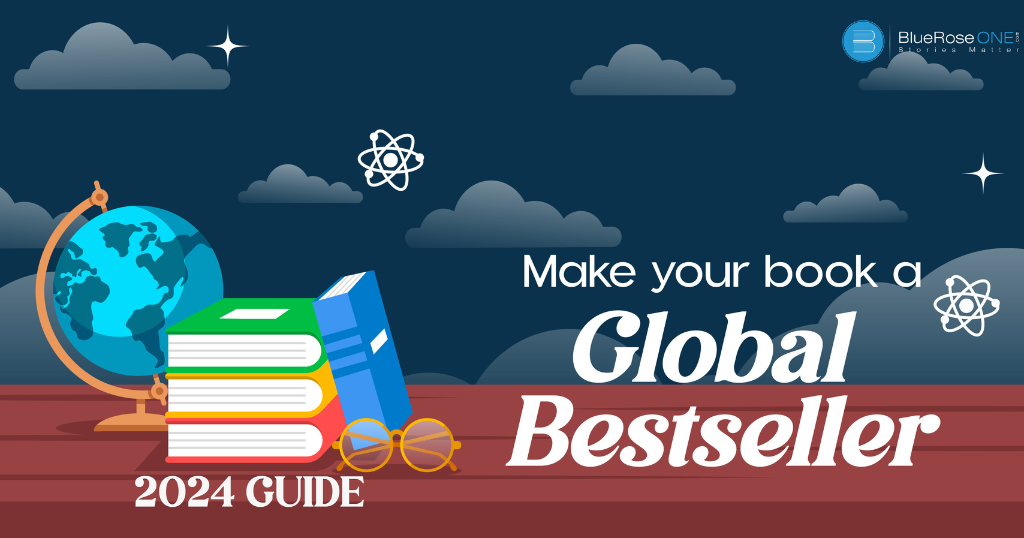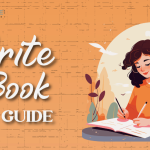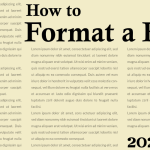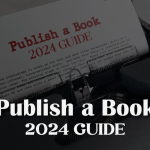To some, becoming a bestseller author seems like a distant goal to achieve—to be enthralled by the idea of seeing your book on the bestselling list. But it might not be that difficult or easy. A bestselling book is not an instant success but a process that requires time and patience.
From starting with an idea, researching, writing, knowing what your target audience is, marketing, early-stage reviews, publishing your book, book launch, and ultimately sales.
Keeping up with the whole chain would not be a bed of flowers, but the fueling passion and hard work make all the writers stick till the end. To all aspirational writers, we are here to make your work easy and curate the whole chain to make your work a little less hectic.
Here’s a list of things to keep in mind to make your book a global bestseller:
Write a book that stands out

You may also like: List of 15 Prestigious Literary Awards in 2024
Find Your Target Audience

You may also like: Book Writing Tools That Actually Make a Difference
Make the most of your online presence.

Developing a strong online and offline presence for yourself as a writer is crucial to getting your work noticed by readers. The success of a book can be greatly impacted by an author’s exposure and interaction with their audience in the connected world of today. An official author website acts as your virtual headquarters, providing readers with a one-stop shop for details about you and your writing. It has to include a simple layout, an author profile, information about the book, and a blog or update area where readers can learn about your writing career.
Using social media to interact with others is a dynamic approach to reaching a larger audience. Select distribution channels that correspond with your intended audience and consistently provide content showcasing your writing style and personality. Social media platforms give you a way to communicate directly with your audience and create a community around your work.
Creating worthwhile content regularly is essential to maintaining an active author platform. Share information that connects with your audience regularly, whether it be through newsletters, blog posts, or articles. This keeps your fans interested in and invested in your next releases, as well as establishing you as an authority in your genre.
Participate in conversations, answer comments, and create a sense of community to actively engage your audience. Genuine exchanges foster a devoted readership that identifies with you as a writer. This relationship may result in more people buying your books. To increase your reach, team up with other writers, influencers, or experts in your industry. Collaborative projects, joint events, and cross-promotions can help you build credibility in the literary community and reach new audiences with your work.
Engage in online and offline literary events. Participate in virtual book tours, writer’s conferences, and book signings to establish connections with other writers and prospective readers. These gatherings offer priceless chances to express your individuality and form connections that go beyond the written word in your book.
Through the strategic integration of these components, you may establish a robust author platform that enhances your exposure and builds a committed fanbase, laying the groundwork for your book’s success in the cutthroat publishing industry.
Invest in professional cover design.
You may also like: Fantasy Books complete publishing guide in India 2024
Always ask for feedback.

Using book reviews to your advantage is an essential tactic in the process of turning your work into a bestseller. Good evaluations affect prospective readers’ purchasing decisions in addition to serving as social evidence. Here’s how to use book reviews to your advantage to raise the profile and awareness of your book.
Invite advance readers and members of your current network to provide early reviews. Request frank reviews from friends, family, and coworkers who have read your book on sites like Goodreads, Amazon, or other book review websites. Early reviews lend legitimacy to your work and may persuade more people to pick it up.
Make contact with reviewers and book bloggers in your genre. Look up blogs or websites that are dedicated to reviewing books just like yours. Make a formal approach and offer them a copy of your book for review. A favourable review from an authoritative source can greatly increase the perceived value of your work and draw in more readers.
Take part in online book reviews or blog tours. Work with bloggers or virtual book clubs to schedule several reviews for the period surrounding the publication of your book. During a crucial time, this concerted effort can create a buzz, boost exposure, and supply a consistent flow of reviews.
Make use of social media to showcase favourable evaluations. Post brief excerpts of positive evaluations along with eye-catching images or quotations on your social media accounts. This invites your readers to express their opinions and experiences with your book while also showcasing favourable feedback. React to reviews tactfully and productively. Interact with those who take the time to leave their comments. A well-reasoned reply shows your gratitude for their input and fosters a good rapport between the writer and the reader.
Think about providing book clubs or online reading groups with review copies. Book clubs can offer a forum for conversation that results in additional evaluations and suggestions. Interacting with these groups builds a network of support for your book in addition to obtaining evaluations.
To sum up, utilising book reviews requires actively pursuing and encouraging input from a range of sources. Good reviews boost the legitimacy of your book, make it easier for others to find it, and are essential in persuading prospective readers to check out and support your work.
Optimise online seller platforms
You may also like: Exploring English Literature: Literary Landscapes
Plan a book launch
The release of your book is a critical event that requires thoughtful preparation and calculated execution. A well-planned book launch takes a complex strategy to increase awareness, engage your audience, and create anticipation. Establish specific objectives for your launch first. Whether it’s hitting a sales goal, getting great reviews, or building your author platform, decide what success means to you.
Make a clear launch schedule that includes important checkpoints before and after the release date.
Pre-launch events, release day programmes, and post-launch tactics to maintain momentum should all be part of this. To engage your audience in real time, think about holding a virtual launch event. Use this platform to answer questions, celebrate the book’s publication, and share insights about your work, whether it’s a live stream, webinar, or interactive session.
Make the most of your author platform to create suspense. Use email newsletters, social media, and your website to distribute countdowns, behind-the-scenes photos, and unique sneak peeks. Talk to your audience and urge them to tell others about it. Get media coverage by contacting regional and national publications about features, interviews, or reviews. Press kits that include an author bio, pertinent details about your work, and excellent photos can increase the likelihood that you will receive favourable publicity.
During the launch phase, offer discounts or promotions to encourage early purchases. Restricted availability generates a feeling of urgency that drives first-time purchases and raises the profile of your book. To increase your reach, work with bloggers, influencers, and other writers.
Collaborating on social media, hosting joint giveaways, or writing guest pieces might help you reach a wider audience and establish your book’s reputation in your field. Interact with early readers and invite them to send in reviews and comments. Utilise their endorsements in your marketing campaigns to establish credibility and social proof.
Find a publishing house.

Choosing the appropriate publishing house is a crucial step in releasing your manuscript to the public. It is important to match your work with a publisher that complements your aims and the genre of your book because every publishing business has a unique presence, target market, and set of strengths.
Investigate possible publishers who specialise in your genre to start. Think about their past experiences. Have they produced books that are comparable to yours successfully? Examine their standing in the literary world, their methods of distribution, and the extent of marketing assistance they offer to their writers.
Analyse the publishing house’s scope and scale. While smaller publishers might provide a more individualised approach, larger publishers frequently have more extensive distribution networks and marketing resources. Consider what fits your expectations as well as the particular requirements of your book.
Analyse the editorial staff of the publishing house. It takes a solid editorial collaboration to polish and improve your manuscript. Examine the publishing house’s editors’ biographies to determine their level of experience and whether they have worked on books in your genre before.
Examine the terms of the contract and the publishing house’s royalty rates. Recognise the rights they aim to get and their approach to subsidiary rights. An agreement that is transparent and equitable is essential to a successful collaboration.
Look for reviews and first-hand accounts from writers who have collaborated with the publishing business. Other authors’ insights can offer insightful viewpoints on the professionalism, communication style, and overall publishing experience of the publisher.
To make connections with agents from publishing houses, go to writer’s conferences, literary events, and networking gatherings. Getting to know a publishing business on a personal level might help you better grasp its culture and whether it fits with your book’s concept.
Selecting the ideal publishing house necessitates a careful and knowledgeable approach. It’s not only about getting your book published; it’s also about forging a relationship that will support your literary career in the long run. A fruitful and satisfying publishing process can be enhanced by carefully evaluating how well your manuscript aligns with the strengths and ideals of a publisher.
Read: Learn How to Design a Book Cover? Complete 2024 GuideWriting a remarkable story that captivates readers and makes a lasting impression on their hearts and thoughts is the first step in the complex journey that leads to having one’s book appear on bestseller lists. The story is not a standalone piece; rather, it is deeply woven into the fabric of the audience’s comprehension, lending the writing a resonance beyond the printed word. This literary symphony’s heartstrings are its readership, which it connects with through a strong author platform and resonates with through its goals. The guiding notes in the symphony of a bestselling journey are an author’s commitment, flexibility, and sincere relationship with readers. With every step, writers not only advance the success of their current projects but also build the foundation for a long-lasting and fulfilling career in the dynamic field of writing. As the curtain closes on this guide, the desire to become a bestseller transforms from an abstract goal to a concrete reality, reinforcing the idea that literary success is determined by more than simply sales figures but also by the enduring power of words and narratives.
You may also like: The Role of a Book Publisher: From Manuscript to Bestseller















